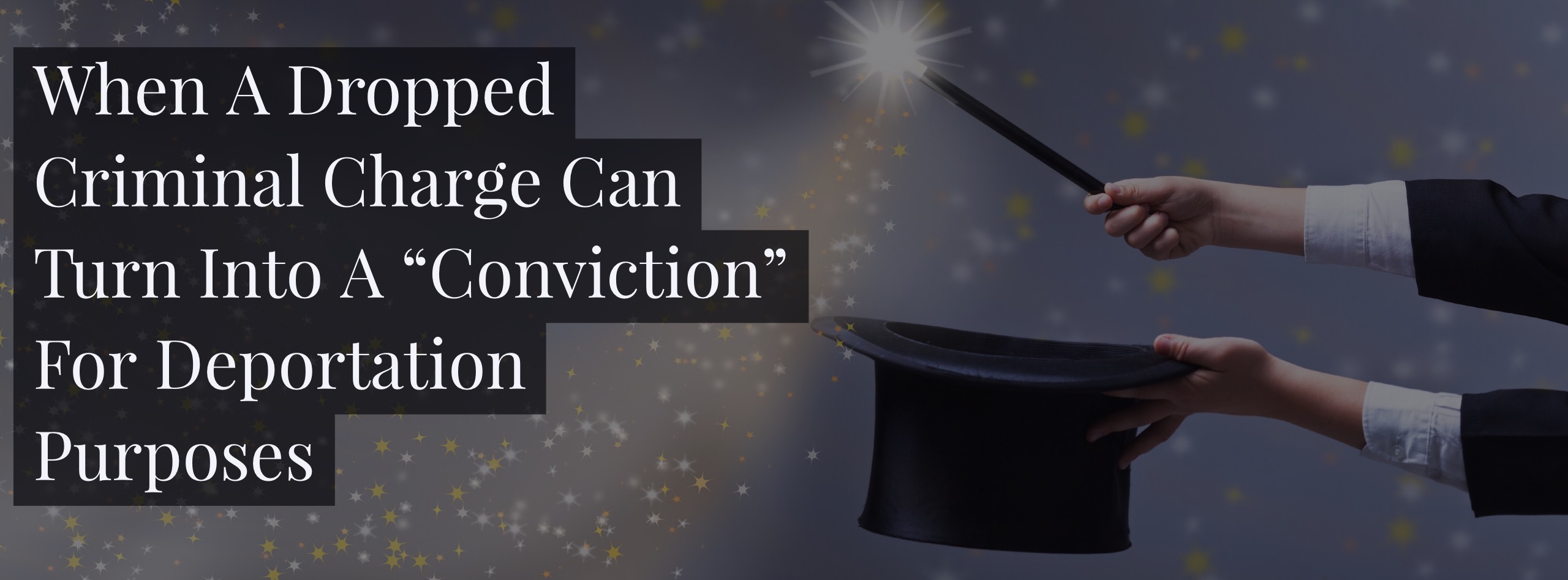
Typically, if the government is going to institute deportation proceedings on the basis of a criminal charge, there must be a conviction. In immigration court, the term “conviction” is interpreted very loosely. For example, in the State of Florida, if a person receives a “withhold of adjudication,” they are technically not convicted, even though they have pled no contest or guilty and receive some form of punishment. However, in immigration court, a withhold of adjudication would serve as a conviction sufficient to form the basis of a removal order. This has been pretty well established in the immigration law community for some time. What hasn’t been established is whether a person can be deported when there has been no formal conviction in criminal court, but the non-citizen admits to the elements of the offense before a criminal law judge.
The Fourth Circuit has recently spoken on this issue in Boggala v. Atty Gen’l, No. 16-1558 (4th. Cir. 2017). Vijaya Boggala, a citizen of India, was arrested for solicitation of a minor. He entered into a deferred prosecution agreement with the state. A deferred prosecution agreement is basically front loaded probation. It is an agreement to complete certain conditions (i.e. probation, counseling, etc.) and the state agrees to drop the charges upon successful completion of those conditions. In this case, Mr. Boggala was required to admit to elements of the offense in open court before a judge, which he did. He then successfully completed all the conditions of his deferred prosecution agreement and the charges against him were dropped. You wouldn’t think that he would be subject to deportation, right? After all, the charges were dropped. Despite not being convicted of the crime, the Department of Homeland Security (DHS) instituted deportation proceedings against Mr. Boggala. They charged him with being deportable under INA Section 237(a)(2)(A)(iii), as an alien convicted of an aggravated felony, and under INA Section 2237(a)(2)(A)(i), as an alien convicted of a crime involving moral turpitude. The question presented to the Fourth Circuit was whether Mr. Boggala was “convicted” of the offense as that term is interpreted under the Section 237(a)(2) of the Immigration and Nationality Act.
Section 101(a)(48)(A)(i) of the INA defines “conviction” as a “a formal judgment of guilt of the alien entered by a court or, if adjudication of guilt has been withheld, where…the alien… has admitted sufficient facts to warrant a finding of guilt.” The Fourth Circuit thus analyzed whether Mr. Boggala admitted sufficient facts to warrant a finding of guilt and not whether the court actually made a finding of guilt. The Court found that because Mr. Boggala stipulated to the facts that were to be used against him, he was convicted within the meaning of Section 101(a)(48)(A)(i), despite not having been convicted in criminal court.
The Fourth Circuit’s decision is a warning to all criminal defense lawyers and to all non-U.S. citizens to make sure that there are no admissions to the elements of the offense, even when the case is going to be ultimately dropped. Thankfully, here in the Fourth Judicial Circuit, admission to the elements are not required in order to obtain pretrial diversion. However, many courts offer court monitored diversion programs, like Drug Court, Mental Health Court, and Veterans Court where the defendant admits to the elements of the offense and are placed on court monitored probation. These outcomes may be very beneficial in the short term as far as a criminal case outcome is concerned. However, it could lead to the prolonged detention and ultimate removal of a non-citizen once the criminal case is through.

Jeremy Lasnetski
Lasnetski Gihon Law
Jeremy Lasnetski is a partner at the Law Offices of Lasnetski Gihon Law. The firm focuses on criminal defense, immigration and personal injury. Mr. Lasnetski focuses his practice on criminal defense and immigration. He is a Florida Bar Board Certified Criminal Trial Attorney and former Assistant State Attorney. He has represented clients in criminal court on all types of charges, in both state and federal court. He is also the former Jacksonville Regional Vice Chair of the American Immigration Lawyer’s Association, Central Florida Chapter and has represented clients in deportation proceedings, USCIS benefit cases, consular processing cases, and more. He routinely gives presentations on criminal and immigration law issues to both criminal and immigration lawyers at conferences and seminars throughout the State of Florida.
 Florida Immigration Lawyer Blog
Florida Immigration Lawyer Blog

